Carbon capture and fossil fuels: Government announces plans
- Published
- comments
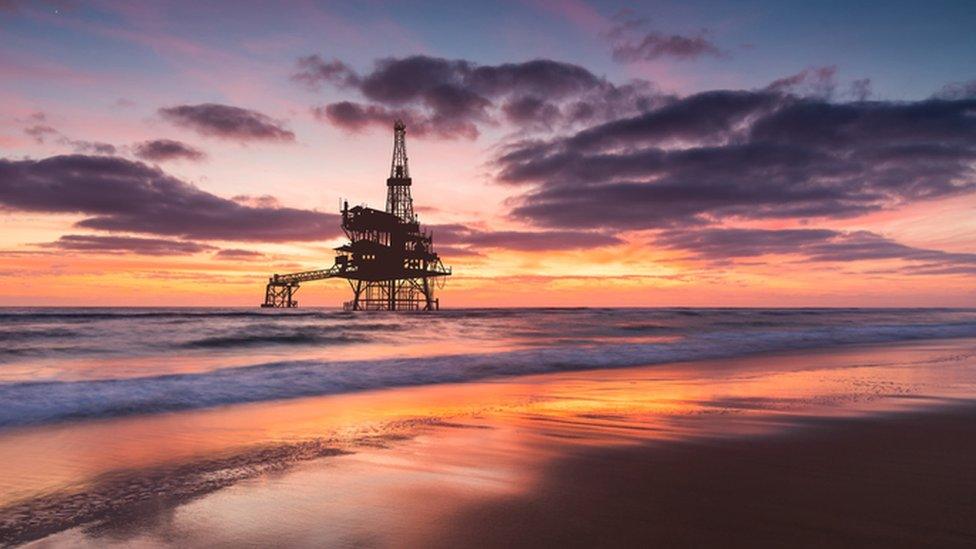
Energy companies need permission from the government to drill for oil
The government has made some announcements today about how the UK will use fossil fuels in the future.
Prime Minister Rishi Sunak announced that new licences allowing companies to drill for oil and gas off the coast of the UK would be available.
He also said the government is going to invest in carbon capture - which is the process of filtering out carbon dioxide from emissions made by big machines.
Rishi Sunak says the plan will keep to the government's net zero plan, but some people say that the Conservatives - Rishi Sunak's political party - are "doubling down" on their fossil fuel choices, and it has been criticised by environmental groups.
What is the Acorn Project?
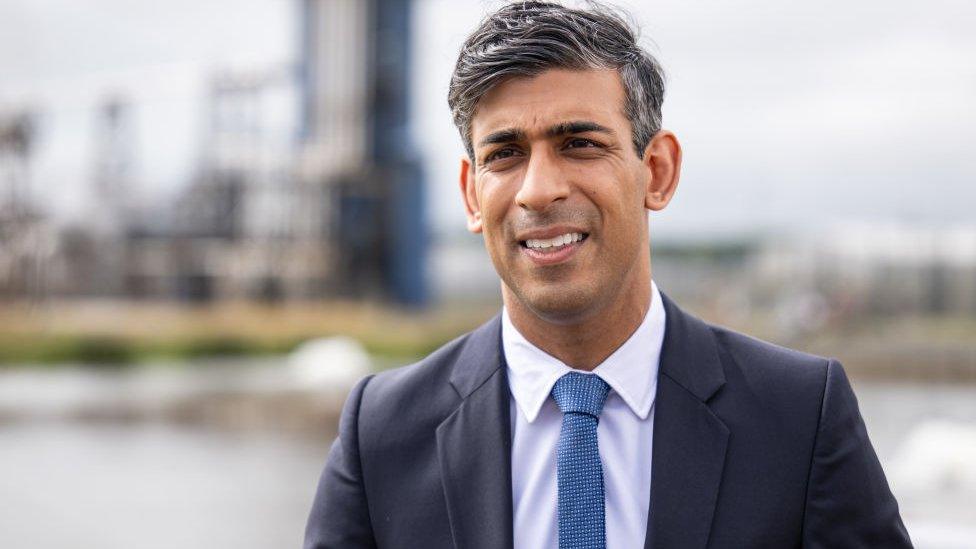
Rishi Sunak announced the plans in Aberdeenshire today, where the project will be
Carbon capture and the oil and gas licences are part of something called the Acorn Project. This is one of four of the government's carbon capture plans, and it involves moving any captured carbon dioxide to a permanent storage zone under the North Sea.
Prime Minister Rishi Sunak says the plan will create thousands of jobs in the UK, and has promised it does help the government meet its current 'net zero' plan.
The government says it aims to reach net zero by 2050. This means balancing the amount of climate changing gasses released into the air by removing capturing the same amount, so overall the total amount of gasses released ends up as zero.
Fossil fuels are non-renewable energy like coal, gas and oil, also known as hydrocarbons.
Most cars, trains and planes burn fossil fuels to create energy.
Burning fossil fuel releases carbon dioxide (CO2) as well as other pollutants. CO2 is a greenhouse gas meaning it contributes to global warming.
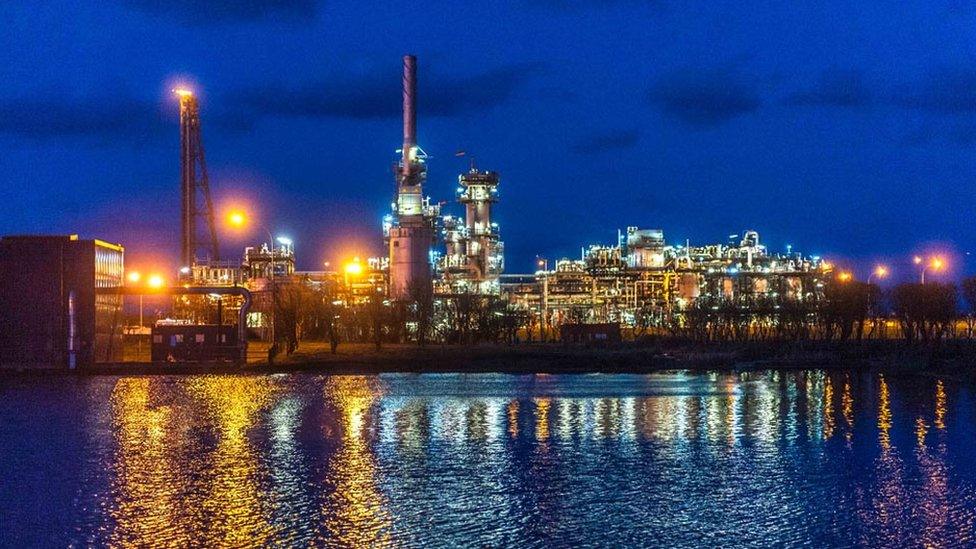
The Acorn Project will be located at St Fergus gas terminal in Aberdeenshire
Greenhouse Gasses - Gasses that trap heat in the atmosphere
Atmosphere - The layer of gasses around Earth
Carbon dioxide (CO2) - A type of greenhouse gas, released by burning coal, oil, or gas
Global warming - Caused by greenhouse effect of gasses like CO2 not allowing heat to escape Earth's atmosphere.
Climate Change - As Earth heats up we are more exposed to extreme weather conditions such as storms and heatwaves
Oil and gas licences

Energy companies need permission from the government to drill for oil
Whilst promising to work on carbon capture, Prime Minister Rishi Sunak also announced that there would be more licences to drill oil and gas in the North Sea.
The government says it is part of a plan to create energy security - which means there will be enough energy being produced for everyone to use. The prime minister said even when the UK gets to net zero in 2050, a quarter of its energy will still come from oil and gas.
However, oil and gas are both greenhouse gasses, which contribute towards climate change. When burned they release carbon dioxide, or CO2, which heats up the atmosphere.
Carbon capture is a method of filtering the air so CO2 is caught before it enters the atmosphere as a greenhouse gas.
When you burn a fossil fuel like coal, oil, or gas, it emits carbon dioxide, which contributes to the greenhouse effect in heating the Earth up, leading to climate change.
When carbon dioxide is captured, it is then moved to a secure location, where it won't be released into the atmosphere.
What are people saying about these new announcements?
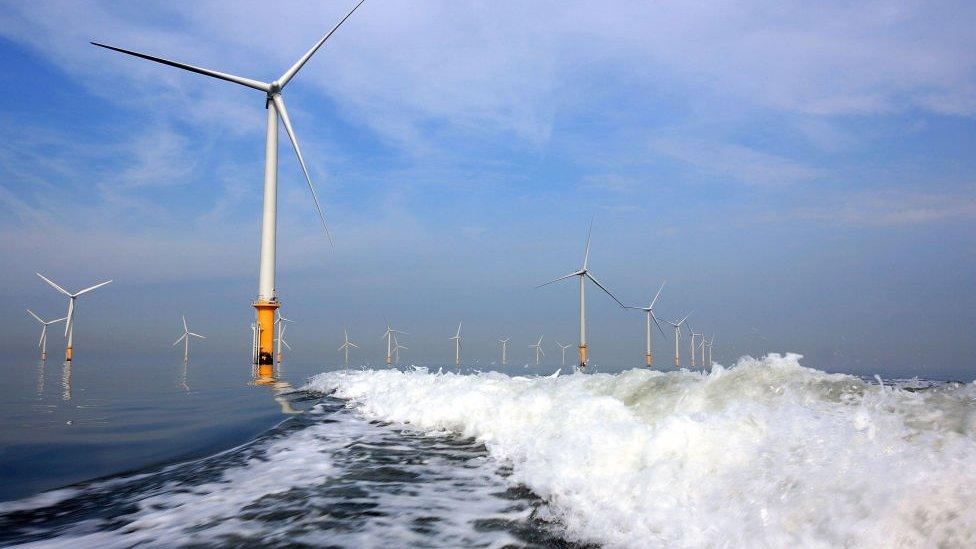
People who are against the Prime Minister's announcement say the government should be investing in green energy, like wind power, instead
Environmental groups and charities have said the plan for new drilling in the North Sea is not a good idea. Oxfam said it would be "selfish" to drill for more oil and gas.
The Labour party says the plan will "drive a coach and horses through our climate commitments" - which is a phrase that means making a big disruption.
Justin Rowlatt, who is the BBC's climate editor, says that it may be "many years" before carbon capture technology can trap "planet-warming carbon dioxide on a large scale", because the technology is still developing.
Prime Minister Rishi Sunak says the new drilling plans won't stop the government from reaching net zero by 2050.
- Published8 October 2022
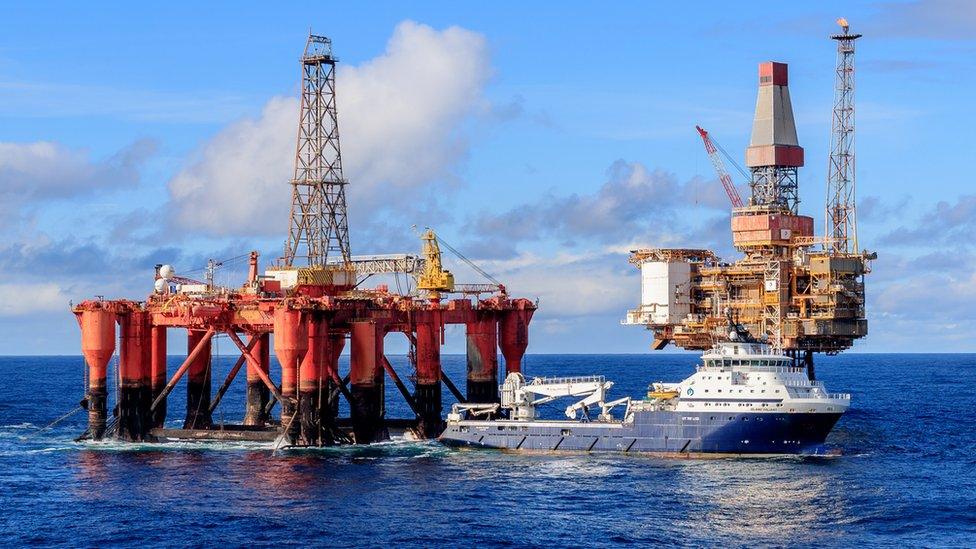
- Published31 March 2023
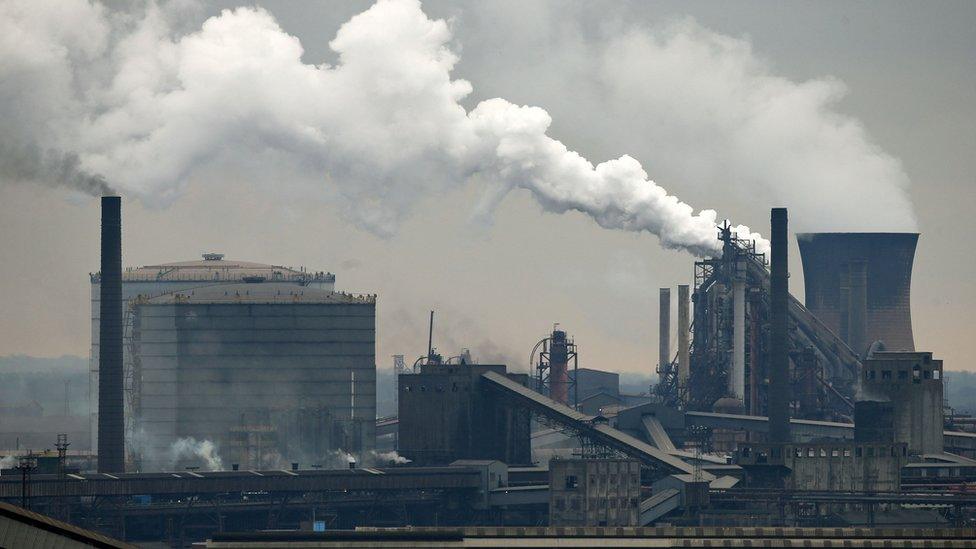
- Published26 May 2023

